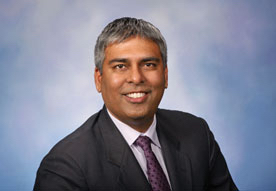Should medical pot users be protected from job firings?
LANSING — In November 2009, Joseph Casias was fired from his job at a Battle Creek Walmart store after a drug test he’d taken during treatment for a workplace knee injury came back positive for marijuana.
Earlier that year, Casias received a card identifying him as a registered patient under Michigan’s medical marijuana law, according to court records from a wrongful termination lawsuit he later would file against the Bentonville, Ark.-based retailer.
Casias showed his card both to the medical staff giving the drug test and to his shift manager, records show, but was nevertheless fired for violating the chain’s drug policy. When he sued, a federal district court and the 6th U.S. Circuit Court of Appeals, each sided with Wal-Mart Stores Inc., contending the state’s medical marijuana statute doesn’t regulate the terms of private employment.
Citing Casias’s case, a Democratic state lawmaker has introduced legislation that would prevent employers from firing or taking other disciplinary action against employees solely on the basis of their status as medical marijuana patients.
Rep. Sam Singh, of East Lansing, says the intent of House Bill 5161 is to treat medical marijuana the same as any other pharmaceutical medication and force employers to prove its use interfered with an employee’s job performance, especially if that use happened outside of work hours.
The intent is to prevent blanket firings and discrimination against workers who use the drug ‒ still considered an illegal controlled substance under federal law ‒ for medical purposes, Singh said.
Some attorneys who specialize in employment law, however, caution that the bill as written is ripe for litigation, due to language they perceive as vague and overly broad.
For instance, the bill’s wording prevents employers from taking action against a worker if the marijuana use “is not incompatible with and does not hinder job performance” — a phrase some lawyers say would place the burden on employers to show that the pot use interferes with a given employee’s performance.
The bill also would prevent employers from asking whether a worker has a medical marijuana card unless a worker faces discipline or termination for a “specific incident involving marijuana” and showing the card would prevent the job action.
“In my opinion, this is creating almost a special exempt class for the use of marijuana,” said Terry Bonnette, a partner with Nemeth Law PC, a Detroit law firm that represents employers.
“What does a specific incident involving marijuana mean?” Bonnette said. “If I am doing a random drug screen and an employee tests positive for marijuana in that random drug screen, is that a specific incident involving marijuana? Or does there have to be, for example, a workplace incident? Does an employee have to drive a hi-lo into a loading dock for me to say, yes, there is an incident?”
Singh said the wording was intentional, to give employers flexibility when dealing with situations on a case-by-case basis. Yes, a positive drug test likely would trigger the job action, he said.
“You’d have to have some very strong compelling reason as an employer to suggest that somebody’s medical marijuana use on their off time is impacting their performance that would cause a detriment to your company,” Singh said.
“The onus really is back onto the employer to make the case for this — versus the other way around — which is automatically being able to assume (marijuana use) is adversely affecting the individual.”
Criticism of the law
Michigan’s 2008 voter-initiated medical marijuana law has been criticized for its broadness since the start. A notable example is the debate over whether dispensaries that proliferated in cities such as Detroit are legal.
Lawmakers this session have taken up bills to more strictly regulate the medical marijuana industry, including allowing edible marijuana products and setting up a so-called “seed-to-sale” tracking system. The bills cleared the House but have stalled in the Senate’s judiciary committee; its chairman, Sen. Rick Jones, has asked Senate Majority Leader Arlan Meekhof to discharge the bills for a vote in the full chamber. Both men are Republicans.
But the law largely has steered clear of private employers. Judges, including the federal appeals court panel that decided Casias’ case, have interpreted the law as not extending to businesses.
The court wrote that “the statutory language of the (law) does not support Plaintiff’s interpretation that the statute provides protection against disciplinary actions by a business, inasmuch as the statute fails to regulate private employment actions”
Bonnette, of Nemeth Law, says he doesn’t believe the law needs further clarification. The amendment being proposed would preclude employers from enforcing their existing drug policies, he argued.
Enforcement headaches
Mohammed Arsiwala, M.D., said he has a zero-tolerance drug policy for his roughly 200 employees at Livonia-based Michigan Urgent Care and Occupational Health, which operates 10 clinics in Southeast Michigan.
Michigan Urgent Care conducts random drug screenings, for which employees are drawn through a computer-generated system. (Arsiwala said he was tested twice himself last year.)
Under a zero-tolerance policy, if an employee tested positive for THC, the main chemical in marijuana, “basically that person would lose their job,” Arsiwala said.
But marijuana can show up on a drug test for a while after a person uses it. And under the bill, someone would have to determine whether the employee was under the influence at the time of the random test or after a workplace safety incident, he said.
“Of course it’s going to be difficult to enforce,” Arsiwala said.
In Casias’ case, he told a court he had been using the drug to treat pain from sinus cancer and an inoperable brain tumor he was diagnosed with at 17. He insisted he never used marijuana before or during his work shifts at Walmart.
According to court records, the urine drug test he was given after twisting his knee while pushing a cart at work came back positive.
Casias lost his job.
An issue of fairness
Singh said his bill allows employers to take job action against a worker if there is cause to do so, such as if the employee was caught using marijuana on the job or comes to work under the influence.
Treating marijuana as a medicine, though, should protect employees who use the drug on their personal time, Singh said.
Yet that raises the possibility for the standard to be unfairly applied, said Marlo Johnson Roebuck, office managing shareholder for law firm Jackson Lewis PC, which represents employers, and has offices in Southfield and Grand Rapids. Companies with zero-tolerance drug policies likely would have to rewrite them and doing so could give medical marijuana patients unfair privilege, Roebuck argued.
For instance, Roebuck said, the bill’s language could make it so that an employee who wasn’t using a substance and was involved in a safety incident at work could be fired, while another employee who also happened to be a medical marijuana patient might keep his or her job if involved in a similar incident.
“If they are protected in that situation, then they would probably be receiving more protection than the average employee who doesn’t have a medical marijuana card, so that could create some inconsistent treatment,” she said.
Singh said he hopes his bill will be the start of the conversation, adding that he would be open to discussing ways to tighten the language if the business community requested it.
See what new members are saying about why they donated to Bridge Michigan:
- “In order for this information to be accurate and unbiased it must be underwritten by its readers, not by special interests.” - Larry S.
- “Not many other media sources report on the topics Bridge does.” - Susan B.
- “Your journalism is outstanding and rare these days.” - Mark S.
If you want to ensure the future of nonpartisan, nonprofit Michigan journalism, please become a member today. You, too, will be asked why you donated and maybe we'll feature your quote next time!


 A bill in Lansing would protect workers properly registered under the state’s medical marijuana law from workplace discipline unless employers could prove the drug interferes with their job performance.
A bill in Lansing would protect workers properly registered under the state’s medical marijuana law from workplace discipline unless employers could prove the drug interferes with their job performance. Rep. Sam Singh, of East Lansing, says the intent of the bill is to ensure that medical pot users receive the same protections as employees being treated with other kinds of medication.
Rep. Sam Singh, of East Lansing, says the intent of the bill is to ensure that medical pot users receive the same protections as employees being treated with other kinds of medication.